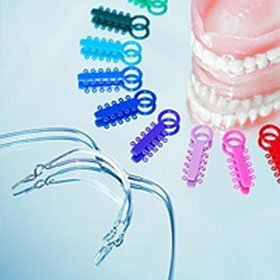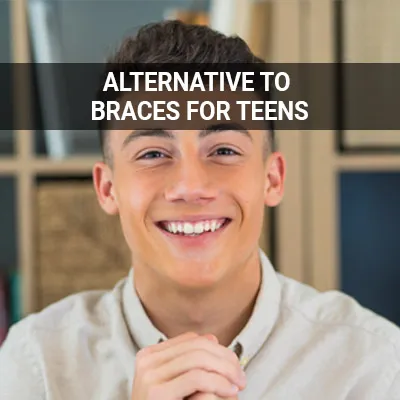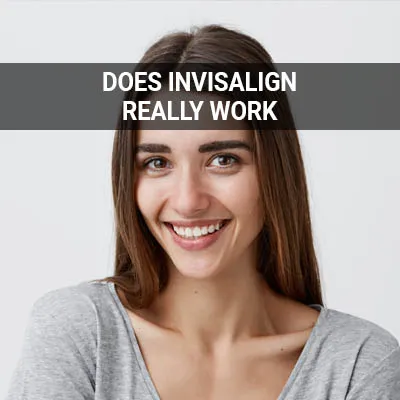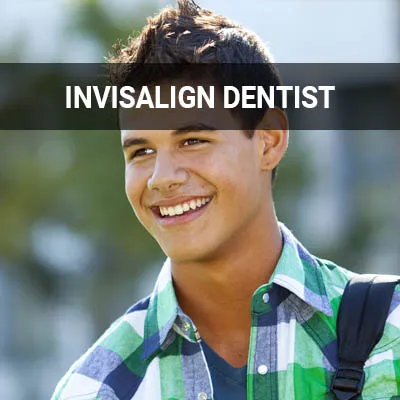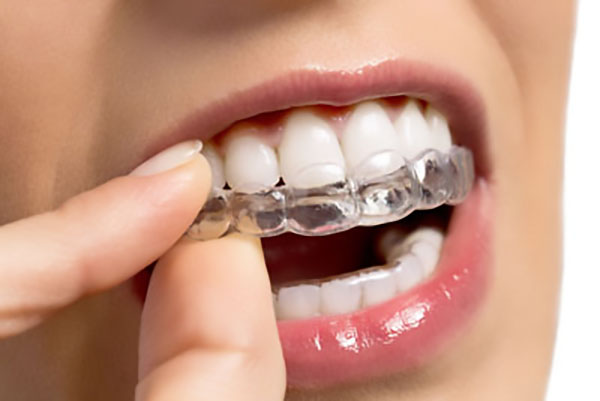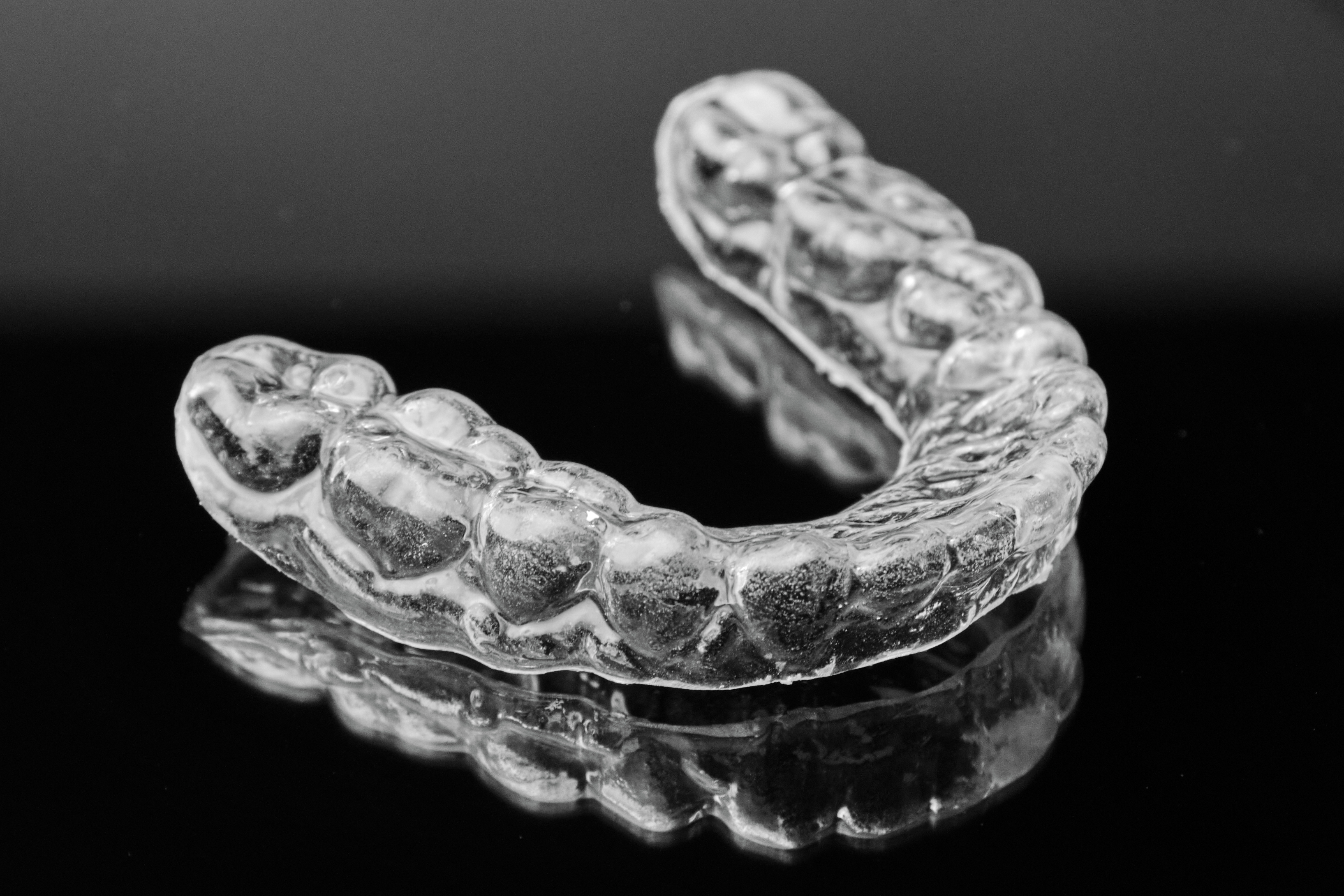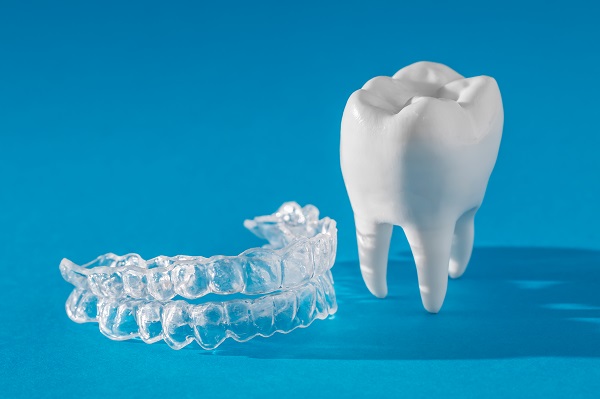Which is Better Invisalign or Braces Dalton, GA
When it comes to orthodontic treatments, many parents find themselves unsure of which option is the best choice for their child's health. Straight teeth do more than reveal a beautiful smile — they enhance the patient's overall oral health. Straight teeth remain easier to clean (thus avoiding unwanted cavities). Orthodontic treatment options also correct bites, helping align the teeth and jaw. Two of the most popular options for straightening teeth include traditional metal braces and Invisalign.
While both traditional metal braces and Invisalign lead toward the same result, there are differences that can make treatment for a child's teeth more challenging. The difference remains within the process of how each type of treatment straightens the teeth. Thus, the question is more about which treatment is best for my child's teeth? While the answer varies per patient, it is a good idea to weigh the advantages and disadvantages of both before coming in for an evaluation.
Dr. Call Dental Center in Dalton is here to help make the right decision for your child's dental needs. Call us at (706) 425-6240 to schedule a consultation.
The Difference Between Metal Braces and Invisalign
While metal braces and Invisalign provide the same end result, it is important to understand the differences and similarities between the two.
Metal Braces
While people may connect metal braces to children or teens, they are still an effective form of dental correction for patients of all ages. For many years, metal braces remained the only option to correct crooked and crowded teeth. Braces involve metal brackets glued to the enamel of each tooth. Metal wires are laced between the brackets to help shape and mold teeth over time. The wires placed on the bracket can sometimes be the same color as tooth enamel so they are less noticeable; however, most of them are metal/silver. Patients also have the option to choose multiple colors to add their own unique style to their braces.
Metal braces are irremovable and stay in place for the duration of treatment. They may be a good option for patients who are concerned about losing their aligner trays or do not want to have to change out trays. Treatment time varies by case, but the average for teens tends to be approximately two years. Most patients require a monthly or bi-monthly check-up, so the practitioner can see how teeth shift, adjust wires accordingly, and ensure there are no issues that need to be corrected.
Invisalign
Invisalign offers a clear set of plastic aligners called "trays" customized to fit each patient's mouth. Invisalign uses 3-D imagery of the patient's teeth to configure and customize the trays to ensure the right fit. The smooth plastic used to create the trays remains BPA-free, providing comfortable wearing. They must be checked and replaced throughout the treatment for both teens and adults to align teeth into the proper position.
Invisalign aligners are removed while eating, drinking, and engaging in activities without interference or concerns about oral injury. Invisalign should be worn approximately 21-22 hours a day for 6-18 months, depending on the issue that needs correcting. Follow-up visits take place approximately every 6 to 8 weeks to change trays. Trays will need to be fitted and customized throughout the treatment as they keep the teeth moving at a gradual pace.
“While metal braces and Invisalign provide the same end result, it is important to understand the differences and similarities between the two.”
Effectiveness
The choice between braces and Invisalign depends largely on preference and the issue that needs correcting. The success rate of Invisalign depends on patient adherence — they must wear the trays to enjoy the benefits of a straighter smile. The trays should be worn for at least 22 hours a day for the treatment to be successful or go as desired.
Braces have also produced positive results in many individuals because of their durability and strength. Individuals with complex dental issues may require metal braces in order to align their teeth. For those with complex dental issues or worry about self-discipline in ensuring continued wear of the trays, metal braces may be a better option. With braces, patients can straighten their teeth without the worry of keeping track of the trays or cleaning them frequently.
“The choice between braces and Invisalign depends largely on preference and the issue that needs correcting.”
Invisalign for Specific Conditions
Invisalign can be helpful for those with mild to moderate dental issues. Treatable cases through Invisalign treatment include overbites, underbites, cross bites, gapped teeth, open bites, crowded teeth, and mixture of baby and permanent teeth. However, each case differs under each of these treatments, and some cases may be too complex to treat with Invisalign.
Complex dental issues requiring traditional metal braces include, but are not limited to, early, late, or irregular loss of baby teeth; delayed eruption of adult teeth; teeth that do not meet at all; missing or extra teeth; incorrect jaw positioning; jaw-clicking; jaw-joint disorder; and respiratory or eating issues. During the consultation appointment, an orthodontist is able to fully understand the patient's case, in combination with other factors, and make a professional suggestion for the appropriate treatment type. In some cases, the patient may qualify for either treatment and be able to choose themselves.
“Invisalign can be helpful for those with mild to moderate dental issues.”
Check out what others are saying about our dental services on Yelp: Which is Better Invisalign or Braces in Dalton, GA
Preventing Teeth From Shifting
After removing traditional braces, most patients must wear a retainer at night to keep their teeth from shifting. If the retainer is not worn, teeth will likely move and require further treatment to straighten them again. Once braces are removed, the patient's teeth must be kept aligned. Most patients require a positioner or retainer, typically worn overnight, to keep their teeth aligned after removing braces. With Invisalign, patients do not have to wear a retainer after treatment as teeth generally stay straight after the course of treatment.
However, Invisalign does require patient adherence as they are responsible for keeping them safe, clean, and in proper condition. Patients who do not adhere to the guidelines given to them may also experience shifting and undesired results by the end of treatment. If the patient misplaces or damages their Invisalign trays, they can be replaced but may delay treatment. Invisalign Teen comes with replacement aligners at no additional cost, as it remains common for teenagers to accidentally throw them away or misplace them once they remove them for eating or engaging in activities.
“With Invisalign, patients do not have to wear a retainer after treatment as teeth generally stay straight after the course of treatment.”
Questions Answered on This Page
Q. What are the differences between traditional braces and Invisalign?
Q. Are braces or Invisalign aligners more effective?
Q. What conditions can Invisalign treat?
Q. Which is more likely to revert after finishing treatment?
Q. What are the dietary restrictions with braces or Invisalign treatment?
People Also Ask
Q. Am I a good candidate for Invisalign?
Q. How can someone find the right Invisalign Dentist?
Q. Should I choose Invisalign Teen for my child?
Q. How do clear aligners save time straightening?
Q. How long is treatment time with traditional braces and Invisalign?
Q. What are the aesthetic differences between Invisalign and traditional braces?
Dietary Restrictions
When wearing braces, patients must only eat foods that are "braces safe." Gum and hard foods, such as candies or nuts, are typically off-limits to prevent damage to the braces or injury to the teeth. Invisalign patients do not have dietary restrictions as they remove the aligners while eating and drinking. However, we do recommend patients eat healthy, nutritious food to keep their oral cavity clean during orthodontic treatment.
In order to care for both braces and Invisalign trays, we advise patients to practice enhanced oral hygiene habits. With braces, patients should brush their teeth at least twice daily and use a water flosser or floss designed for braces at least once daily. There are various other tools for patients with braces, especially those with more complicated issues. With Invisalign, patients should remove their aligners while brushing and flossing. The aligners themselves should also be thoroughly cleaned during oral hygiene care to keep them clean and free of food particles or debris.
“Invisalign patients do not have dietary restrictions as they remove the aligners while eating and drinking.”
Frequently Asked Questions About Braces Versus Invisalign Teen
Q. What is the right time to correct dental issues for my child?
A. The right time to correct dental issues depends on the patient's dental stage. In most cases, children must have all of their permanent teeth before considering braces or Invisalign. General dentists typically refer their patients to an orthodontist when it is likely a good time for correction.
Q. What is the difference between Invisalign and braces?
A. Both Invisalign and traditional braces prove effective but differ in their approach to straightening teeth. Metal braces rely on brackets, wires. and elastics to shift teeth. Invisalign uses removable plastic aligners throughout treatment. As the teeth shift, patients wear new aligners to continue treatment. Invisalign requires patients to wear their aligners for 20-22 hours a day, whereas braces require 24 hours a day.
Q. Does braces or Invisalign treatment work faster?
A. Traditional braces require approximately 18-24 months of treatment. The average treatment time for Invisalign patients takes between 12-18 months, depending on the issues that need correcting. For patients with minor misalignment, their Invisalign treatment may be finished as quickly as 6 months.
Q. Are there any follow-up appointments during Invisalign treatment?
A. We like to schedule follow up appointments every 6 to 8 weeks in order to monitor the progress of the patient as well as hand them their new batch of aligners. During these visits, we can make any alterations to the treatment plan as needed and address any concerns the patient may have had since their last visit. Patients can also call and schedule a follow up sooner if they experience anything concerning.
Q. How much do braces and Invisalign each cost?
A. The average cost of both treatments vary depending on the patient's case and severity. The average cost of braces is between $5,000 and $6,000, although some patients may pay as little as $3,000. The average cost for Invisalign treatment is around $5,000 but may also be as little as $3,500. The cost of each treatment is discussed at the end of the consultation appointment, and payment options are available for all patients.
Invisalign® Terminology
Learn More About Braces Versus Invisalign Teen
If you would like to discuss whether to use traditional braces or Invisalign Teen for your child, call Dr. Call Dental Center in Dalton at 706-425-6240 for more information.
Helpful Related Links
- American Dental Association (ADA). Glossary of Dental Clinical Terms. 2024
- American Academy of Cosmetic Dentistry® (AACD). Home Page. 2024
- Invisalign®. How Invisalign Works. 2024
- Invisalign®. Take the Smile Assessment. 2024
- WebMD. WebMD’s Oral Care Guide. 2024
About our business and website security
- Dr. Call Dental Center was established in 1980.
- We accept the following payment methods: American Express, Cash, Discover, MasterCard, and Visa
- We serve patients from the following counties: Whitfield County
- We serve patients from the following cities: Dalton, Chatsworth, Chattanooga, Ringgold, Rocky Face, and Cleveland Tennessee
- National Provider Identifier Database (1407015639). View NPI Registry Information
- Norton Safe Web. View Details
- Trend Micro Site Safety Center. View Details
Back to top of Which is Better Invisalign or Braces
